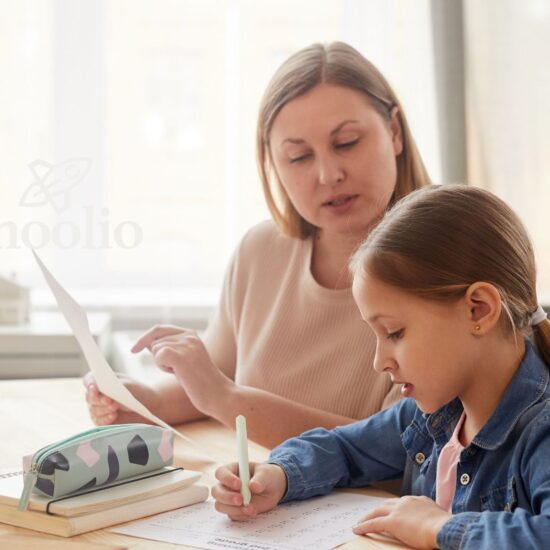Why Does My Child Hate Reading?
Picture this, you’re at the library struggling to find books for your child who hates reading. When another mom has her kid come sit with her. Her kid looks probably 2 – 3 years younger than yours. And she says ‘Let’s read.’ The child then begins reading, perfectly. No fuss, no muss. Just reading. It feels like a punch to your gut. You’ve been working so hard on teaching your child to read but they just don’t want to. What do you do?
First of all, stop comparing. We are taught from a young age to compare ourselves to others. It just seems natural. ‘She has better hair than me.’ ‘Her skin complexion is so much nicer than mine.’ ‘His car is way better than my car.’ ‘If only I could get the promotion like he got.’ It’s dangerous, and unhealthy to compare ourselves to others, yet it feels so unbelievably right. The danger is that in this situation you are comparing your child to another child. And then in turn, teaching your child that they don’t measure up. That they need to be like someone else.
Obviously you want your child’s learning to be on track. You want them to read, write, do all the math problems, listen to everything you say and be perfect in some way. But listen up: perfection is a myth. There is actually no one way that we should be. That applies to us, and our children. When we let ourselves slip, and compare, we poison our home school environment. Sounds harsh, but it’s true. And here’s how:
I struggle severely with comparison, I always have. But when I allowed that to trickle into our homeschool, I was a mess and my kids weren’t loving it. Suddenly I felt incomplete. I felt lacking. I felt frustrated that my kids weren’t doing what other families were. That constant negative soundtrack playing in my mind, would cause me to become agitated much more, which clearly didn’t help with teaching or my kids attitudes. In order to help your children grow and learn in a happy environment you need to free yourself, and them, of the comparison chains. Your child isn’t reading like that kid at the library, so what? Are you working on it? Yes. So why bother comparing?
My oldest daughter had a really, really difficult time reading. She was 7 and still was reading at a beginner level. Everything I tried, failed. I was frustrated with myself, I had feelings of failure. Like, I wasn’t doing something right for her. But the truth is, I was. She just needed time. She went from reading beginner levels to reading levels far higher than her age, in just a matter of months. How did this happen? She was ready, I was patient.
We like to think that kids should be reading at 4, and be experts by 6, forgetting that every child is on their own timeline. Your child doesn’t read at 5? That’s ok. You feel like the time you put into teaching reading is wasted? It’s not. Sitting down with your child, going over letter sounds, and sight words, it all goes in their sweet little minds. It may feel like it’s not sticking, but one day everything just clicks. It does! The issue is that we let ourselves compare way too much. So stop. Don’t compare your child’s reading to another child’s. Everyone has their own timeline. Every child develops differently and that’s not a bad thing. Remember when they were just a baby and you were hoping they’d say their first word? You waited, you said ‘Mama, Mama’ to them. And that stuck. They did it! (Maybe they said Dada first) Even so, they did it. You weren’t standing over them, getting frustrated saying ‘Come on baby, just say Mama! Why can’t you say Mama?’ Instead you were loving, you’d peek their interest by lovingly saying words over and over, with kindness and a smile.
That sweet little bundle of joy grew, and grew and naturally you think they need to be reaching reading milestones, and I assure you they will.
Below is list of tips that I’ve learned from our own homeschool reading journey:
- Make reading enjoyable. As stated above, don’t pressure your child with timelines. Don’t compare them. Don’t get stressed when they just can’t figure out that word that you’ve taught them a hundred times. Instead, make it enjoyable. Snuggle up with them, help them with the words. Cheer for them when they get it right. Be kind and understanding when they get it wrong.
- Be very patient with your child. Deep breathe. I know this is hard. Especially when you’ve been teaching and you’re exhausted. Don’t try to hustle them into that next reading level. Just take it one step at a time, even if the steps are small and exhausting.
- Be calm. Your child feels your energy. When you’re agitated and annoyed, they will be. Or, they will feel like they never get it right, and that could lead to further issues. So just take it easy.
- Try switching up their reading times. Do they get more annoyed in the afternoon, the evening? Try reading in the morning with them. Or vice versa. Make a nice breakfast and read together.
- Break it up. My second daughter struggles with large paragraphs. Seeing all the words together overwhelms her. So we read those together. She will read a sentence, I will read a sentence. She has trouble sounding something out, I help her. We work as a team, and enjoy the process together.
Your child’s got this. And you’ve got this. Their reading level is not a reflection of how great a teacher or parent you are. You aren’t damaging your child. Their reading is a reflection of their very own timeline. That doesn’t mean throw the books in the closet and turn on the T.V. That means, each and every day read a little more. Utilize the steps above. Enjoy it. They’re going to get this sooner than you think. You are doing an amazing job my friend.
Jaymee Davis is a stay-at-home/ work-at-home/ homeschool mama. Her goal is to help you have the very best homeschool experience possible. She believes you can do anything, and wants to foster that belief in yourself.




